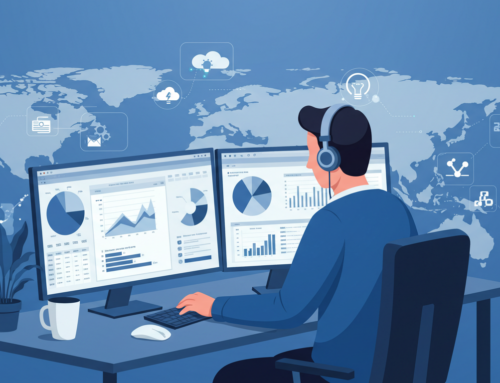Hey there! Looking to make some extra cash from the comfort of your own home? Well, you’re in luck! The world of online transcription jobs is booming right now, and there’s a wide variety of opportunities just waiting for you to seize. From legal and medical transcription to general, video, audio, real-time, and even podcast transcription, there’s something for everyone. But which ones are truly the best? Stay tuned as we delve into the top seven online transcription jobs that are not only in high demand but also offer great earning potential. Trust us, you won’t want to miss out on this incredible opportunity.
Legal Transcription
If you’re looking for a career in legal transcription, you’ll need to be accurate, detail-oriented, and efficient. Legal transcription involves converting audio recordings of legal proceedings, such as courtroom proceedings or depositions, into written documents. As a legal transcriptionist, your role is crucial in ensuring that accurate records are maintained for legal proceedings.
Courtroom transcription is one aspect of legal transcription that requires special attention to detail. It involves transcribing audio recordings of courtroom proceedings, including the statements made by lawyers, judges, witnesses, and defendants. Accuracy is of utmost importance in courtroom transcription, as any errors could have significant consequences for legal cases. You’ll need to have a strong grasp of legal terminology and be able to accurately transcribe the spoken word into written form.
Deposition transcription is another area within legal transcription that requires precision and efficiency. Depositions are recorded statements given under oath by witnesses or parties involved in a legal case. These recordings need to be transcribed accurately to ensure that all relevant information is captured. Attention to detail is essential in deposition transcription, as the transcripts may be used as evidence in court.
Medical Transcription
When it comes to medical transcription, you need to have a mastery of medical terminology, specialized transcription skills, and industry-specific knowledge. Understanding medical terms and abbreviations is crucial to accurately transcribing medical documents. Additionally, specialized skills such as knowledge of medical procedures and medications, as well as the ability to interpret complex medical reports, are essential in this field. Having a solid foundation in medical knowledge and transcription techniques will ensure your success in the medical transcription industry.
Medical Terminology Mastery
Mastering medical terminology is essential for your success in the field of medical transcription. With the advancements in transcription technology, it is crucial to stay up-to-date with the latest medical terminology and practices. Obtaining a medical transcription certification can help you gain a solid foundation in medical terminology and ensure accuracy in your work. This certification will demonstrate your expertise and commitment to maintaining high standards in the industry. Additionally, staying informed about transcription technology advancements will enable you to utilize the latest tools and software to enhance your productivity and efficiency. By mastering medical terminology and staying updated with transcription technology, you will position yourself as a highly skilled medical transcriptionist, increasing your chances of success in this field.
Specialized Transcription Skills
To excel in the field of medical transcription, it is crucial to develop specialized skills that go beyond just mastering medical terminology. One of these skills is a familiarity with legal terminology. Medical transcripts often include legal documents, such as insurance claims and medical records, which require an understanding of legal terms and concepts. Being able to accurately transcribe these documents is essential for providing high-quality medical transcription services.
Another important skill for medical transcriptionists is advanced audio editing. Medical audio files can be complex, with background noise, overlapping voices, and technical jargon. Having the ability to edit these audio files effectively is crucial for producing accurate transcripts. Advanced audio editing skills allow transcriptionists to enhance audio quality, remove background noise, and isolate specific voices or segments, resulting in clearer and more accurate transcriptions.
Industry-Specific Knowledge
Having industry-specific knowledge is essential for success in the field of medical transcription. To excel in this specialized domain, you need to acquire industry-specific expertise through transcription training. Here are three reasons why industry-specific knowledge is crucial for medical transcriptionists:
- Accuracy: Medical transcription requires transcribing complex medical terms and procedures. A solid understanding of medical terminology and knowledge of various medical specialties is vital for accurately transcribing medical records.
- Comprehension: Medical transcriptionists need to comprehend the context of medical reports to ensure accurate transcription. Familiarity with medical procedures, diagnoses, and treatments allows you to capture the intended meaning and produce high-quality transcripts.
- Efficiency: Having industry-specific knowledge enhances your productivity as a medical transcriptionist. With a solid foundation in medical terminology and procedures, you can transcribe more efficiently, reducing errors and turnaround time.
General Transcription
When it comes to general transcription, there are certain skills you need to succeed. These include excellent listening and typing abilities, as well as strong grammar and punctuation skills. To find the best platforms for transcription work, you can explore popular websites like Rev, TranscribeMe, and GoTranscript. The average pay for general transcription can vary, but it typically ranges from $15 to $25 per hour, depending on your experience and the complexity of the projects.
Skills Required for Transcription
If you’re interested in pursuing a career in general transcription, there are specific skills you’ll need to develop. Here are some key skills required for transcription:
- Familiarity with transcription software: To excel in transcription, you’ll need to become proficient in using transcription software tools. These tools help you to transcribe audio or video files efficiently and accurately.
- Excellent listening and comprehension skills: Transcription involves listening to audio recordings and accurately transcribing them into written form. Having the ability to listen attentively and understand different accents, dialects, and speech patterns is crucial for producing accurate transcripts.
- Attention to detail: Transcription requires meticulous attention to detail. You’ll need to accurately capture every word, punctuation mark, and speaker identification in the recordings. A keen eye for detail ensures that your transcripts are error-free and of high quality.
Best Platforms for Transcription
There are several reliable platforms available for general transcription work. When it comes to finding the best platforms for transcription, it’s important to consider factors such as the available transcription software and the quality of transcription training provided. One platform that stands out in terms of software is TranscribeMe. Their proprietary software is specifically designed for transcription tasks, making the process more efficient and accurate. Another popular platform is Rev, which offers a user-friendly interface and a wide range of transcription opportunities. For those looking for comprehensive training, GoTranscript is a great option, as they provide thorough transcription training to help improve your skills. These platforms not only offer a variety of transcription opportunities, but also provide the necessary tools and training to excel in the field.
Average Transcription Pay
The average pay for general transcription jobs is typically based on factors such as experience, industry specialization, and the specific transcription platform being used. When considering transcription job opportunities, it’s important to have a clear understanding of the pay rates in the industry. Here are some key points to keep in mind:
- Experience: Transcribers with more experience generally command higher pay rates due to their expertise and efficiency.
- Industry Specialization: Some transcription jobs require specialized knowledge in fields such as legal, medical, or technical. These specialized fields often offer higher pay rates.
- Transcription Platform: Different platforms may offer varying pay rates, so it’s essential to research and compare the rates before choosing a platform.
Video Transcription
Video transcription is an essential task for accurately converting spoken words in a video into written form. If you’re interested in video transcription jobs, you’ll need to have some knowledge of video editing and captioning software. These skills will help you efficiently transcribe the audio from videos and synchronize it with the corresponding timestamps. Video editing software can help you make necessary adjustments, such as removing background noise or enhancing the audio quality, to ensure the accuracy of your transcriptions. Captioning software, on the other hand, allows you to add captions or subtitles to the video, making it accessible to a wider audience.
When transcribing videos, it’s important to pay attention to detail and ensure the accuracy of the transcribed content. This includes capturing not just the spoken words, but also any non-verbal cues, such as laughter or pauses, that may be important for conveying the intended meaning. Additionally, being efficient in your transcription process will help you complete tasks within the given timeframe.
Audio Transcription
To excel in audio transcription jobs, it’s crucial to be attentive, precise, and efficient in capturing spoken words and conveying their intended meaning. Audio transcription involves converting spoken language into written text, and it requires specialized skills and tools to ensure accuracy and efficiency. Here are some key points to consider when it comes to audio transcription:
- Audio editing: Audio transcription often involves working with recordings that may have background noise, low volume, or other issues. Familiarity with audio editing software can help you enhance the quality of the audio and make it easier to transcribe accurately.
- Transcription software: Using transcription software can greatly improve your efficiency and productivity. These tools often come with features like playback control, automatic timestamps, and text formatting options. They can save you time and make the transcription process smoother.
- Attention to detail: Paying close attention to the spoken words is essential in audio transcription. It’s important to accurately capture every word, including proper nouns, technical terms, and any other relevant information. Precision and thoroughness are key to delivering a high-quality transcription.
Real-time Transcription
If you’re looking for a transcription job that requires quick and accurate typing skills, real-time transcription may be the perfect fit for you. Real-time transcription involves transcribing spoken words or live events as they happen. This type of transcription comes with its own set of challenges, but it also offers several benefits.
One of the main challenges of real-time transcription is the speed at which you need to type. You must be able to keep up with the speaker, accurately transcribing their words in real-time. This can be particularly challenging if the speaker talks quickly or if there are multiple speakers involved. Additionally, real-time transcription requires excellent listening skills and the ability to quickly adapt to different accents and speech patterns.
Despite these challenges, there are many benefits to real-time transcription. First, it offers an opportunity for immediate feedback and correction. If you make a mistake, you can quickly correct it, ensuring the accuracy of the transcript. Real-time transcription also allows for faster turnaround times, as the transcript can be delivered immediately after the event or conversation ends. This can be especially valuable for time-sensitive projects or urgent requests.
Podcast Transcription
Podcast transcription is a valuable service that provides written transcripts of audio content for easy accessibility and reference. With the rise in popularity of podcasts, more and more people are turning to transcription as a way to enhance their podcast marketing efforts and improve their podcast editing process. Here are some key reasons why podcast transcription is essential:
- Accessibility: Transcripts allow individuals with hearing impairments to engage with your podcast content. It also caters to those who prefer reading over listening, enabling a wider audience reach.
- SEO Optimization: Transcripts help search engines understand the content of your podcast, making it more discoverable. By incorporating relevant keywords, you can improve your podcast’s visibility and attract more listeners.
- Content Repurposing: Transcripts serve as a valuable resource for repurposing podcast episodes into blog posts, articles, or social media content. You can easily extract key points and quotes, saving time during content creation.
Frequently Asked Questions
Are There Any Specific Qualifications or Certifications Required to Work as an Online Transcriptionist in Any of These Fields?
To work as an online transcriptionist in any field, you may need certain qualifications or certifications. These could be necessary to ensure you have the necessary skills and knowledge to perform the job effectively.
How Do Online Transcription Jobs Differ From Traditional In-House Transcription Work?
Online transcription jobs differ from traditional in-house work by allowing you to work remotely as a freelance transcriptionist. Instead of being tied to an office, you can transcribe from anywhere, like a digital nomad with a keyboard.
Are There Any Software or Tools Available to Assist in the Transcription Process?
There are many software tools available to assist in the transcription process. Transcription software can help you transcribe audio files more efficiently and accurately, saving you time and effort.
Can Online Transcriptionists Choose the Type of Transcription Projects They Work On, or Are They Assigned by the Company?
You have the freedom to choose your transcription projects based on your preferences. Companies usually allow online transcriptionists to select the type of projects they want to work on, rather than assigning them.
What Is the Average Pay Rate for Online Transcription Jobs in These Different Fields?
The average pay rates for online transcription jobs vary depending on the field you choose. It’s important to note that job qualifications may also affect your earning potential.
Conclusion
So, if you’re looking for a flexible and rewarding work-from-home opportunity, online transcription jobs are definitely worth considering. While some may argue that transcription work can be challenging and time-consuming, it can also be highly fulfilling and financially rewarding. With the right skills and dedication, you can excel in this field and enjoy the benefits of working on your own terms. Take the plunge and start your transcription journey today!




